Table of Contents
Cordyceps Mushrooms and Female Fertility: Unveiling Natural Benefits for Enhancing Reproductive Health
Cordyceps mushrooms have sparked interest in the wellness community, particularly regarding their impact on fertility (male and female). These unique mushrooms, which grow on insects in the wild, offer various health benefits, including potential improvements in female fertility. Compounds within cordyceps such as cordycepin and adenosine have been studied for their role in protecting reproductive cells and enhancing fertility. As one of the best superfoods at least for myself, and people who already incorporate into their diet, it is becoming increasingly popular among women looking for non-pharmaceutical options to support their reproductive health.
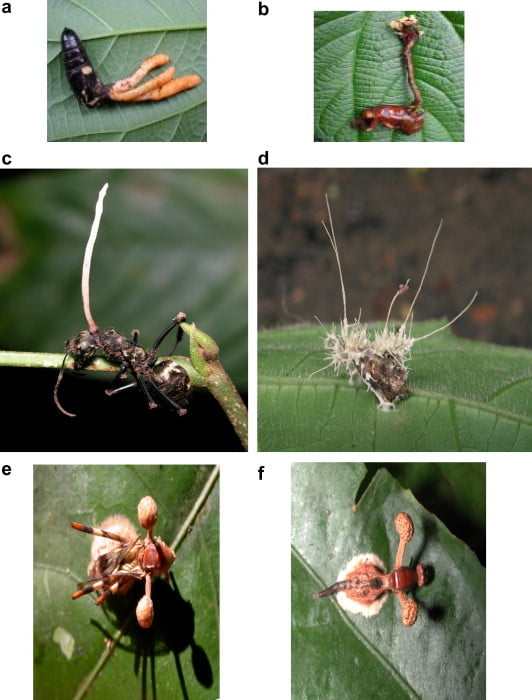
(a) Cordyceps militaris on dead insect;
(b) Cordyceps polycephala on dead insect host; (c) Cordyceps spp. on Campanotus; (d) Cordyceps spp. on an unidentified moth; (e) Cordyceps spp. on a micropezid fly; (f) Cordyceps spp. on another micropezid fly.
There is an ongoing conversation about whether cordyceps can improve fertility metrics such as estrogen levels. Estrogen plays a significant role in female fertility, and some studies suggest that the ingestion of cordyceps can influence hormonal balance, potentially increasing estradiol-17 levels.
Key Takeaways
- Cordyceps mushrooms offer health benefits that include potential improvements in female fertility.
- They are associated with influencing hormonal balance, which is crucial for reproductive health.
- Consumed as a dietary supplement, cordyceps can be easily introduced into one’s wellness routine.
There is a lot of confusion around cordyceps mushrooms: Cordyceps sinensis and Cordyceps militaris.
What is cordyceps and what is the difference between cordyceps sinensis and militaris?
Let’s break down these terms before diving into the fascinating world of this unique fungus.
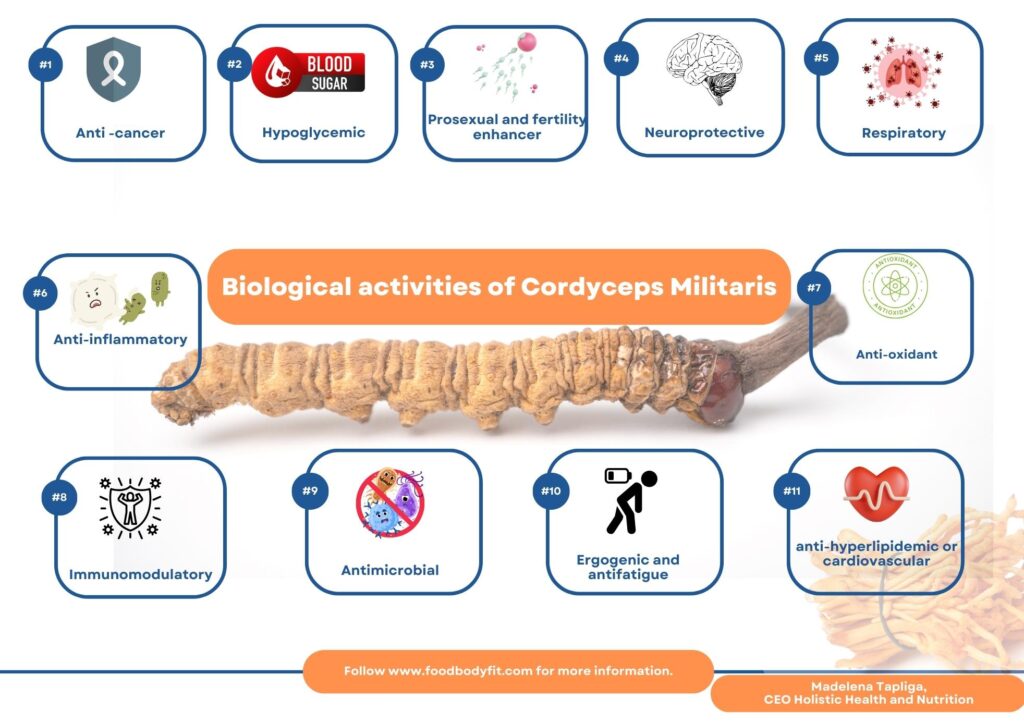
Cordyceps are parasites of insects or fungi, often exhibiting a high degree of host specificity
The complete insect/fungus combination is used traditionally, but not exclusively, for medicinal purposes.
Did you know?
According to Dong and Yao (2007)For hundreds of years, going back at least to the 17th century, this complex (including the larva body) has been cherished in China as a health food and traditional remedy to “invigorate the lung and nourish the kidney.”
- Ophiocordyceps sinensis ( Cordyceps sinensis CS):
- Distribution: This fungus is primarily found in the Himalayan region, including parts of Nepal, Tibet, Bhutan, and India.
- Medicinal Use: O. sinensis has been highly valued in traditional Chinese medicine for centuries. It is believed to have various health benefits, including boosting the immune system, improving respiratory function, and enhancing stamina.
- Overharvesting Concerns: Due to its limited distribution and high demand, O. sinensis has been overharvested in the wild. This has raised concerns about the sustainability of its wild populations.
- Cordyceps militaris (Orange Caterpillar Fungus):
- Similar Medicinal Properties: C. militaris has chemical compounds similar to those found in O. sinensis and is believed to offer comparable medicinal benefits.
- Cultivation: Unlike O. sinensis, C. militaris can be cultivated in controlled environments. This makes it a more sustainable option and allows for large-scale production.
- Research as an Alternative: Due to the overharvesting concerns with O. sinensis, researchers and the traditional medicine community are exploring C. militaris as a viable alternative. The cultivation of C. militaris offers a more sustainable and controllable supply of the fungus for medicinal purposes.
Overview of Cordyceps Mushroom benefits
Over 350 species related to Cordyceps have been identified globally, based on their association with specific fungi and/or insect hosts. Cordyceps sinensis has been officially recognized as an herbal drug in Chinese pharmacopeia since 1964. Furthermore, the outbreak of Severe Acute Respiratory Syndrome (SARS) in China in 2003 led to a significant increase in usage.
Because of its life cycle in Mandarin is known as Dongchongxiacao (winter-worm summer-grass) in Chinese, C. sinensis is among the most renowned traditional Chinese medicines and medicinal mushrooms, and for its potential health benefits, especially in the realm of fertility, its properties continue to be of great interest.
Historical Use
CS is a fungus that parasitizes Lepidoptera larvae, particularly attacking caterpillars in late autumn. By early summer of the following year, the caterpillar dies, and the fungus’s fruiting body protrudes from its head. In traditional Chinese medicine, CS is used to address weakness after sickness, lung and kidney-related diseases, and sexual dysfunction1. Recent studies have explored the pharmacological effects of CS, revealing its potential to modulate immune responses, inhibit tumor cell proliferation, enhance hepatic function, regulate insulin sensitivity, lower plasma cholesterol levels, and exhibit hypotensive and vasorelaxant activity. Moreover, CS has been found to influence steroidogenesis, with effects on corticosterone production in rat adrenal cells and induction of steroidogenesis in Leydig cells.
C. sinensis is approved for use in food and dietary supplements within the EU, recognized in key documents by the EC and EFSA like the Novel Foods Catalogue and Compendium of Botanicals.
The Cordyceps mushroom story is deeply rooted in traditional Chinese and Tibetan medicine. For centuries, practitioners have acclaimed it for its ability to enhance vitality and support a variety of bodily functions. Cordyceps was so valued that it was reserved for royal families and the elite, often compared to the revered ginseng for its restorative properties.
In 2007, the price of the commodity soared to over 200,000 RMB/kg (about US$25,000), with its usage over the past decade constrained by limited supply (2)
Modern Applications
Fast forward to today, and the intrigue surrounding Cordyceps fungus has only grown. Researchers actively explore its effects, particularly its influence on hormonal balance and reproductive health. There is scientific interest, especially in the potential for Cordyceps militaris to regulate estrogen levels, which is of particular significance for female fertility. Incorporating Cordyceps into diets or supplements is becoming popular for holistic wellness.
Cordyceps For Female Fertility
Cordyceps mushrooms are gaining attention for their potential benefits in enhancing female fertility by possibly improving hormonal balance and overall reproductive health.
Does cordyceps increase estrogen?
The fascinating relationship between cordyceps mushrooms and female fertility is established in the natural compounds found in these fungi. Cordyceps may influence hormonal regulation, particularly the levels of estrogen, which is crucial for female reproductive health. Women seeking natural ways to support fertility often turn to cordyceps as part of their dietary supplementation. The mushroom is believed to improve libido, increase energy, and may even enhance ovarian function, laying the foundation for improved fertility.
Studies and Research Highlights
While research is ongoing, some studies offer promising results on the impact of cordyceps on fertility. Notably, research highlights include the potential of cordyceps to:
- Enhance mitochondrial activity within cells, which could lead to increased energy availability and boosted endurance for reproductive processes.
- Research suggests that Cordyceps can support mitochondrial function in cells, which is critical for egg quality and vitality. Their rich composition of bioactive components may help optimize the cellular environment for egg development.
- Cordyceps may enhance fertility by supporting overall energy and stamina. It is believed to improve blood flow and balance hormone levels, which are both critical factors in reproductive health.
- Positively affects estrogen production, suggesting a beneficial impact on hormonal balance, which is a key factor in female fertility.
It’s suggested that cordyceps can be consumed with food, making it a potentially convenient addition to a daily regimen for those interested in its fertility-enhancing potential. However, individuals considering cordyceps for fertility purposes should consult healthcare professionals for personalized advice.

Cordyceps Benefits for Female Fertility
Investigations into the potential fertility advantages of Cordyceps mushrooms for females have shown promising results, particularly concerning ovarian function and hormone regulation.
Enhanced Ovarian Function
Researchers have observed that Cordyceps may enhance ovarian function by increasing the production of adenosine triphosphate (ATP), which is vital for providing the energy necessary for cellular processes. In the context of female fertility, an increase in ATP could potentially improve the maturation and quality of ova (egg cells).
Improved Hormonal Balance
Cordyceps has also been linked to the possibility of better hormonal balance in women. This mushroom may influence the production and regulation of vital fertility hormones such as estrogen. The balance of these hormones is critical in managing the menstrual cycle and ovulation, which are key aspects of female fertility.
Can Cordyceps help with fertility?
Estrogen
Researchers have explored the potential for Cordyceps sinensis and Cordyceps militaris to modulate hormones within the endocrine system. Some studies suggest that these fungi may stimulate an increase in estrogen production, indicating a possible benefit for women seeking fertility enhancement.
According to Huan et al (2004) 17β-Estradiol can affect oocyte quality and assisted reproduction outcomes. CS mycelium is thought to boost libido and fertility in both genders.
Mechanisms of Action
The underlying mechanisms by which Cordyceps may influence estrogen levels are thought to involve the activation of aromatase, an enzyme responsible for the biosynthesis of estrogen. By increasing aromatase activity, Cordyceps could theoretically elevate estrogen production. This is particularly significant during the follicular phase of the menstrual cycle, where higher estrogen levels are crucial for ovulation and endometrial preparation for potential pregnancy.
Nutritional Profile of Cordyceps Mushroom
Cordyceps mushrooms are famed not only for their unique parasitic lifecycle but also for their impressive nutritional makeup. They offer a diverse range of vitamins, minerals, and active compounds beneficial for health.
Key Nutrients
Cordyceps mushrooms provide a rich array of essential nutrients. They are known to contain:
- Vitamins. Water-soluble vitamins (B2, B3, and C) and fat-soluble vitamins (A and E). B2 and B3 reduce fatigue and support normal energy metabolism, vitamin C protects against oxidative stress, and supports the immune system, collagen formation, and iron absorption, while vitamin A contributes to cell specialization and vision, and vitamin E protects against oxidative stress.
- Minerals: The elements magnesium, potassium, selenium, and sulfur are present in C. militaris, offering an alternative source for these minerals in the human diet. Selenium in C. militaris occurs organically, chelated with amino acids or proteins
- Amino Acids: All essential amino acids, making it a complete protein source.
- Dietary Fiber: This aids in digestion and promotes gut health.
Bioactive Compounds
Beyond basic nutrition, cordyceps are well known for their unique active compounds:
These compounds encompass cordycepin and other adenosine derivatives with anti-bacterial and anti-tumor properties, ophicordin, a substance with anti-fungal capabilities, and l-tryptophan. According to Wu Y., Sun C., Pan Y. (2005)2 polysaccharides exhibiting anti-oxidant activity and nucleosides that inhibit platelet aggregation
C. militaris is rich in beneficial compounds like cordycepin, adenosine, GABA, and ergothioneine, surpassing the levels found in C. sinensis. It also contains a variety of biologically active substances, including glycolipids, glycoproteins, D-mannitol, xanthophylls, sterols, statins, and phenolic compounds, along with essential vitamins and biominerals such as magnesium, potassium, selenium, and sulfur.
Cordycepin, isolated from C. militaris in 1950, has been proven through studies to have various benefits including immunostimulating, anti-inflammatory, antiviral, and antitumor properties, and effects on energy levels, lipid and sugar metabolism, and reproductive health.
- Carbohydrates in Cordyceps militaris, particularly D-Mannitol, play a vital role in its metabolism. D-Mannitol, also known as cordycepic acid, serves as a carbohydrate reserve and assists in the osmoregulation and control of metabolic pathways. It exhibits osmotic activity, making it useful as a diuretic and anti-edematous drug in clinical practice.
- Apart from D-mannitol, C. militaris contains saccharides with complex structures known as polysaccharides. Mannose, glucose, and galactose are the predominant monosaccharides forming saccharide polymers, with additional ones like arabinose, rhamnose, and xylose detected.
- In vitro and/or in vivo experiments have demonstrated that these polysaccharides exhibit diverse activities, including immunostimulatory, antitumor, anti-inflammatory, antioxidant, hypoglycemic, hypolipidemic, and hepatoprotective effects. They stimulate immune responses by activating macrophages and promoting the production of various immune factors. Furthermore, these polysaccharides show potential in inhibiting tumor growth and inducing apoptosis in tumor cells, indicating their role in anticancer activities.
- Aminoacids. The fruiting bodies of Cordyceps militaris contain a total amino acid content of 57.39 mg/g dry weight, including both protein and non-protein amino acids. Non-protein amino acids identified include GABA and ergothioneine. GABA, synthesized from glutamic acid, serves as an inhibitory neurotransmitter affecting various areas of the central nervous system, regulating sleep, memory, and emotional processes, and exhibiting myorelaxant and anticonvulsant activities.
- Ergothioneine, a sulfur analog of L-histidine, is a non-protein amino acid found in C. militaris. It is not produced by mammals and must be obtained through the diet. Various fungi, including C. militaris, are rich sources of ergothioneine. The compound has antioxidant, cytoprotective, and radioprotective properties, demonstrated in in vitro and in vivo experiments. Human studies suggest that ergothioneine supplementation correlates with reducing oxidative stress markers, particularly in situations predisposing to oxygen-free radical generation, such as inflammatory diseases or physical exercise.
- The concentration of ergothioneine in the human body decreases with age, particularly after 60 years, which may have implications for neurodegenerative diseases.
- Carotenoids. Cordyceps militaris fruiting bodies show a vibrant yellow-orange color due to the presence of carotenoids, including prominent xanthophyll derivatives such as β-carotene, lycopene, lutein, and zeaxanthin. Lutein and zeaxanthin, also found in the human eye’s macula, are associated with cognitive function improvement, stress reduction, and antioxidant effects.
- Statin: cordyceps militaris serve as a valuable natural source of lovastatin, a member of the statin group widely used for cholesterol reduction. Statins, including lovastatin, exhibit pleiotropic effects, such as protecting the vascular endothelium.
- Phenolic compounds in mushrooms, particularly phenolic acids and flavonoids, play a crucial role due to their potent antioxidant effects, shielding vital structures like proteins, enzymes, lipids, and nucleic acids from oxidative damage. Phenolic acids such as vanillic and caffeic acids exhibit strong antioxidant properties, and compounds like p-Hydroxybenzoic, gallic, and protocatechuic acids in edible mushrooms showcase not only antioxidant activity but also antibacterial, antifungal, antiviral, and anti-inflammatory effects, as evidenced by in vitro and in vivo studies.
- Lectins found in the fruiting bodies of C. militaris are glycoproteins that exhibit mitogenic activity by binding to sugar residues on cell surfaces, causing cell clumping or agglutination.Militarinones, classified as alkaloids, show antimicrobial and cytotoxic activities. Pentostatin, an analog of hypoxanthine, inhibits adenine deaminase, demonstrating antitumor and immunosuppressive effects, making it a registered chemotherapeutic agent for cancer treatment. Cordymin, a peptide in C. militaris, exhibits antimicrobial activity.
Recommended Dosages
Determining the right dosage of Cordyceps is crucial for maximizing its fertility benefits. While specific dosages can depend on the form of Cordyceps—whether as a powder, capsule, or extract—a general guideline is as follows:
- Powder: 3 to 6 grams per day
- Capsules: Guideline dosages provided by the manufacturer
- Extracts: Check with healthcare provider for concentration and equivalent dosages
Elixir of Life provides 30% beta glucan, containing the best cordyceps mushroom supplement UK, the recommended dose is 2 g/day, in the morning.
Individuals should consult with a healthcare provider before starting any new supplementation to determine the most suitable dosage for their unique circumstances.
Best Practices for Consumption
To maximize the benefits of Cordyceps for fertility, consider the following best practices:
- Consistency: Take Cordyceps regularly to support hormone balance and reproductive health.
- With Food: Cordyceps can be taken with meals to ensure optimal absorption and minimize potential digestive discomfort.
- Quality Products: Choose high-quality, reputable brands to ensure the purity and potency of Cordyceps supplements.
It is also important to incorporate Cordyceps into a balanced diet and a healthy lifestyle for the best likelihood of improving fertility outcomes.
Can you take cordyceps with food?
Individuals interested in the potential fertility benefits of cordyceps should understand the best methods to consume this unique mushroom. The effectiveness of cordyceps can depend on its form and whether it is ingested with food or on an empty stomach.
Do you love cookies:) Let’s bake it .Try this delicious receipe full of magic medicinal mushroomsand share with us your amazing results 🙂
With Food or on an Empty Stomach
Cordyceps mushrooms may be taken with or without food. The choice largely depends on one’s digestive sensitivity and personal preference. Some people find that taking supplements with food reduces the chance of gastrointestinal discomfort. However, others may prefer to take cordyceps on an empty stomach for quicker absorption.
What is the taste?
Forms of Cordyceps Available
Cordyceps is available in various forms, each offering a unique method of consumption:
- Capsules/Pills: Easy to take and often combined with other complementary ingredients.
- Powder: Can be mixed into beverages like smoothies or sprinkled onto meals. Check with the producer if the powder is obtained via water extraction or is dry powder mushrooms
- Tinctures: Concentrated liquid form, typically administered directly under the tongue for fast absorption.
Choosing between these forms is a matter of personal convenience and preference.
However, I always recommend to my clients to buy extract powdered mushrooms or tinctures. I advise against the use of capsules primarily due to concerns regarding absorption and the liver’s metabolic processes. The liver serves as the body’s internal processing plant, diligently metabolizing our diet, medications, alcohol, topical applications, and even contaminants present in the air, such as heavy metals. Therefore, it is preferable to avoid burdening the liver with additional tasks, especially since many capsules contain undesirable ingredients.
Safety and Side Effects
Wu et al. (1996) reported two cases of lead poisoning linked to Cordyceps herbal medicine, with one patient showing symptoms and the other asymptomatic. High levels of lead (20,000 ppm) were found in the Cordyceps powder.
Therefore is very important to buy from reliable sources, where do check for heavy metals and toxicity.
When considering cordyceps for its potential benefits on female fertility, one must also weigh the safety and side effects of its use. Thorough knowledge of possible interactions and specific precautions for pregnant women is essential.
As someone who started consuming medicinal mushrooms a few months ago, I can personally attest to their incredible benefits. At 53 and experiencing menopause, I have no symptoms typically associated with this stage. My energy levels are high, my hormones are perfectly balanced, my mood is stable, I sleep well, and I feel clear and focused. Additionally, I’m not experiencing any bloating or other discomforts. Discover the power of medicinal mushrooms for yourself and experience a transformation in your health and well-being.
Known Interactions
Cordyceps has a reputation for being well-tolerated by many, but they should be cautious about potential interactions. Individuals on antidiabetic medications should speak with their prescriber, monitor the glucose level, and titrate medication accordingly with the new values. Cordyceps may lead to potentially enhanced effects, causing hypoglycemia. Individuals with hormone-sensitive conditions ought to be especially vigilant since cordyceps might act as an estrogen in the body.
Precautions for Pregnant Women
Pregnant women often have concerns about what they can safely consume. When it comes to cordyceps, insufficient evidence exists on its safety during pregnancy and breastfeeding.
Alternative Natural Fertility Aids
In the realm of fertility enhancement, the spotlight often falls on cordyceps for its potential benefits. Below, you’ll find a deeper look into how cordyceps compares to other superfoods and the possible synergies it may have with complementary supplements.
Comparison to Other Superfoods
Cordyceps stands out among fertility-enhancing superfoods due to its purported ability to improve libido and sexual function. While maca root is renowned for its energy-boosting properties and royal jelly for its rich nutrients, cordyceps is unique in its claim to increase estrogen levels, which may be advantageous for female fertility. Compared with goji berries, which are lauded for their antioxidant content, cordyceps is also suggested to improve ovarian function.
Complementary Supplements
Integrating cordyceps with other supplements may amplify its fertility-promoting properties. Folic acid is a staple for women trying to conceive, essential for fetal development. Pairing it with cordyceps could potentially enhance female reproductive health. Similarly, omega-3 fatty acids are pivotal for hormone regulation; coupled with cordyceps, the duo could support overall fertility wellness.
Frequently Asked Questions
What are the top mushrooms recommended for boosting female fertility?
Besides Cordyceps, other mushrooms like Reishi and Turkey Tail are also considered beneficial for female reproductive health due to their adaptogenic and immune-modulating properties.
Let’s Drink the Best Powder Mushrooms, without coffee. Elixir Of Life with 30% Beta Glucan
Elixir of Life contains the best cordyceps supplement UK, the cordyceps militaris powder mushroom has been obtained via water extraction.
Elixir of Life is the Best Mushroom Supplements 2024, contains the best powder mushrooms a blend of: the Best Reishi Mushroom Extract, the Best Turkey Tail Mushroom UK, the best Maitake Mushroom supplement, the Best Tremella Mushroom supplement, best Lions Mane brand, Elixir Of Life, The Best Cordyceps Supplement UK, the Best Shiitake Mushroom supplement,
Conclusion
The potential of Cordyceps mushrooms in enhancing female fertility is genuinely promising. This unique fungus has shown signs of boosting estrogen levels, which play a crucial role in reproductive health. Women exploring natural options to support fertility may find Cordyceps an exciting option. Integrating it into one’s diet might offer a dual advantage—providing nutritional support while possibly enhancing fertility factors. It’s invigorating to see such ancient remedies being validated by modern research.
Always consult healthcare providers before starting any new supplement regimen especially one related to fertility. It’s important to approach such options with careful optimism and ensure that any intake is balanced and appropriate for one’s health profile. The symbiosis between eating well and taking Cordyceps may just be the catalyst needed for some on their fertility journey.
Which Mushroom Is Best For Gut Health? Unlock The Secret
Do you suffer from Gastro-esophageal reflux disease (GERD) ?Is mushroom bad for GERD?Are mushrooms good for GERD?Are reishi mushrooms…
Forgotten Superfood Turkey Tail Mushroom, Will Change Your Life Forever
Table of ContentsTurkey Tail Mushroom Medicinal Uses, Benefits, and Side Effects Explained: Coriolus Versicolor InsightsKey TakeawaysMechanisms of Action of…
Amazing Elixir of Life-Best Medicinal Mushroom Powder UK
Experience Wellness – The Elixir of Life AwaitsBest Medicinal Mushroom Powder: Medicinal Fungi, Your Forest FriendsMedicinal Mushrooms and connection to…
Is Diabetes A Nutritional Deficiency Disease: 8 Missing Important Nutrients
Type 2 Diabetes Nutritional Deficiency: Exploring Causes, Supplements, and Prevention StrategiesIs Diabetes A Nutritional Deficiency Disease?Causes and Risk FactorsThe…
10 Best Medicinal Mushrooms and Diabetes Management
People are going to start realizing, why take those antibiotics that are extracts of mushrooms? Why not just have…
5 Hidden Secrets of Maitake mushroom and Weight Loss
Which mushroom helps with weight loss?Grifola frondosa Dancing Mushroom OverviewMaitake mushroom nutrition factsHealth Benefits of Maitake mushroomImmune System SupportCancerCardiovascular…
Can Lion’s Mane Help With ADHD?
Table of ContentsBenefits of Lion’s Mane on Brain Function: A Comprehensive Guide to Benefits, Dosage, and NutritionDoes Lion’s Mane…
Secrets of Mind-Blowing Cordyceps Mushrooms And Female Fertility
Cordyceps Mushrooms and Female Fertility: Unveiling Natural Benefits for Enhancing Reproductive HealthOverview of Cordyceps Mushroom benefitsHistorical UseModern ApplicationsCordyceps For Female…
The Best Tremella Mushroom Guide: 11 Amazing Health Benefits Of
What is tremella mushroom good for?Why History MattersTremella Mushroom Nutrition FactsVitamins and MineralsMacronutrients Tremella Mushroom Health BenefitsCreates Youthful Healthy…
Fatty Liver and Cirrhosis: The Best Guide and Diet Insights
Table of ContentsFast factsFatty Liver DiagnosisStages and Progression of CirrhosisHow Fatty Liver Leads to CirrhosisTreatments for Fatty LiverManaging Cirrhosis MedicallyMeal…
The Link Between Laxatives and Dementia: You Need to Know
Link between laxatives and dementia care ukWhat is the number of people living in care homes in the UK who…
The Best Guide To Powerful NLS Bioresonance Therapy for Health
Welcome to our comprehensive guide on Bioresonance Therapy, a revolutionary approach to holistic wellness. This blog post will explore the…
The 5 Interesting Hidden Links Between Stress and Constipation
Introduction Can stress and anxiety cause constipation? Chronic constipation – an often-overlooked medical conditionLet’s talk about the types and…
The Truth About Awesome Water Fasting Benefits
The concept of water fasting has emerged as a powerful antidote to reset our bodies and rejuvenate our overall well-being….
Heartburn During Pregnancy:19 Tested Ways to get relief from It
How can I relieve my heartburn while pregnant?Congratulations on the little miracle growing inside of you!It’s essential to understand that…
GERD Diet: Foods That Help with Acid Reflux (Heartburn)
Some of the questions received about the GERD Diet at the email address office@foodbodyfit.comGastroesophageal reflux disease (GERD) symptoms?Lifestyle changes and…
Is Choline the missing link for better Human Health?
Did you know that 90% of the population is at risk for a choline deficiency? Low choline intake has been…

Weight management
Weight management With the term ‘obesity’, we characterise an abnormal or excessive accumulation of body…
Nutritionist consultation
Nutritionist consultationsNutritionist consultations have a clear roadmap to recover your health, happiness and increase your energy level.What is the…
The best benefits of DMSO- The best guide that covers
Table of ContentsThe best Benefits of DMSO Unlock Your Cells’ Potential with DMSO – A Powerful Tool for Supporting Life’s…
Online Nutrition
Online Nutrition consultations provide accurate and up-to-date scientific nutrition information that can help you reach your goals. Take control of…
Osteoarthritis healing.
Osteoarthritis, full recovery without surgerySummer, 2016. Osteoarthritis healing.I woke up with severe pain in my right knee, hence I…
Best online nutritionist UK. What is a Clinical Nutritionist?
Can I see a nutritionist online?Online weight loss consultationOnline diet consultationOnline weight loss managementHow much does a nutritionist cost in…
Expert Personalised Nutrition: You Need To Know Why Everyone Is
Table of ContentsWhy Personalised Nutrition?What are the factors that can cause this difference in metabolism for two people eating the…
How Powerful Astaxanthin Empower People’s Wellness and Immunity
What is the difference between natural and synthetic astaxanthin?Astaxanthin health benefitsAstaxanthin skin benefitsFood supplement recommendationsAbsorption and bioavailabilitySafety of AstaxanthinWhat is…
DMSO a true medical miracle
THE BEST BENEFITS OF DMSO- THE BEST GUIDE THAT COVERS 31 MEDICAL CONDITIONS THAT WILL BENEFIT OF USING DMSO update…

Knee to toes. What you need to know
Management of Varicose VeinVaricose veins are twisted, dilated veins most commonly located on the lower extremities. Risk factors include chronic…
Ultrasound Fat Reduction & Weight Management
Non surgical fat reductionUltrasonic cavitation, or ultrasound cavitation, is a cosmetic procedure that’s used to break apart fat deposits in…
The sensational hidden world of CELLULAR NUTRITION
Cellular nutrition involves providing cells with the necessary materials to carry out their metabolic functions. This includes supplying them with…
Managing Rheumatoid Arthritis with Dietary Interventions
Rheumatoid arthritis (RA) is a systemic, debilitating, chronic inflammatory autoimmune disorder affecting approximately 1% of the world population (1). The…
Osteoarthritis and nutrition
Osteoarthritis (OA) is a degenerative joint disease and a leading cause of adult disability. It can affect any joint of…
Goal setting weight management
This article provides advice on goal setting to people who are trying to make changes to their diet and lifestyle….
Eat well to heal well
Your food and fluid requirements will increase if you have a pressure ulcer or open wound. To encourage your skin…
Why do I need iron?
How do i increase iron in my diet ?How much iron do I need in my diet?Iron is important for…
13 Secrets of How to Lower Your Cholesterol Fast
Are you concerned about your cholesterol levels? Discover the secrets of lowering your cholesterol naturally through diet. Make informed decisions…
What is gastroesophageal reflux disease?
What is gastroesophageal reflux disease?GERD DIET: FOODS THAT HELP WITH ACID REFLUX (HEARTBURN)Gastroesophageal reflux disease (GORD, sometimes also known as…
Lowering your potassium levels
Why are my potassium levels high?What is Hyperkalemia?Hyperkalemia is an excessive level of potassium in the bloodstream.Potassium has several important…
Best Advice For Lowering Your Cholesterol
High cholesterol contributes to 4.4 million annual fatalities and stands as a significant risk factor for heart disease and stroke…
Iron-Deficiency Anemia
Iron-Deficiency Anemia Anemia tends to come in two forms- pernicious anaemia and iron deficiency. If you gave pernicious anaemia , it…
Why Riboflavin is Crucial for Optimal Health and Wellness?
How it is absorbed ?Riboflavin deficiencyThe Role of Riboflavin in Homocysteine, Folic Acid and the Metabolism of Other VitaminsGroups at…
Vitamine B1 or Thiamine
Vitamine B1 or Thiamine is a water soluble vitamin, which means it is not stored in the body. A member of…
Vitamin A, retinol and beta carotene
Vitamin A Retinol and beta carotene Retinol is the naturally occurring form of vitamin A, and it is founded mainly in animal…
Causes and symptoms of Acne
Causes and symptoms of Acne Although most people associate acne with the troublesome teenage years, it can erupt at any age….
Dandelion the best natural sources of potassium
Dandelion the best natural sources of potassium Dandelion (Taraxacum officinale)I would like to introduce one of my favourite herb: dandelion. Don’t…
What is a portion? Why count calories?
What is a portion? Below are some examples of what constitutes 1 portion of each food group. A healthy balanced diet…
Signs of toxic overload
Signs of toxic overload Answer the following questions as truthfully as you can. The aim of a detox programme are to reduce…
Common illness in children and benefits of herbal medicine
Common illness in children and benefits of herbal medicine: Children’s illness, even in western medicine is widely accepted principle that the…
Benefits of Manual lymphatic drainage
Benefits of Manual lymphatic drainage(MLD) Lymphatic massage is an advanced therapy. This massage treatment is fully tailored to each individuals needs. Before…
What is herbal medicine?
Herbal medicine is used to treat the whole person. Herbal remedies create balance in the body, enabling the body’s self healing…
Women’s health
Women’s health. Plant based medicine play an important role in the lives of many women. This is because herbal remedies fulfil…
The Best VIP Bridal Weight Loss Program of 2025
Bridal Weight Loss Program 2025 by Madelena Clinical Nutritionist, Clinical Director and Women’s Health Specialist Feel Confident, Clear & Glowing on…
Can hormones affect weight loss? Hormonal reasons for not losing
Can hormones affect weight loss? Can hormones make it hard to lose weight?Hormonal Reasons for Not Losing WeightSigns of Hormonal…
What is Beta Glucan Mushroom Extract?
Beta Glucan Mushroom Extract Explained Beta glucans extraction from mushroomsBeta glucans mushrooms health benefitsWhich Mushrooms Contain Beta-Glucans?What is the Most Powerful…
Refund and Returns Policy
Thank you for shopping with Holistic Health Company We value your satisfaction and strive to provide high-quality supplements and services….
Why am I not losing weight on Mounjaro 10mg?
Mounjaro miracle drug?Is Mounjaro for diabetes and weight loss? Why am I not losing weight on Mounjaro 10 mg (2.5…
The Best Diet Plan After Liposuction
What to eat after liposuction?What are the best foods to eat after laser lipo?What to eat after abdominal liposuction?The Best…
- Zhu JS, Halpern GM, Jones K. The scientific rediscovery of a precious ancient Chinese herbal regimen: Cordyceps sinensis: part II.
J Altern Complement Med 1998 4:429 -457. ↩︎ - Feng K, Yang Y. Q, Li S. P. Renggongchongcao. In: Li S. P, Wang Y. T, editors. Pharmacological Activity-Based Quality Control of Chinese Herbs. New York: Nova Science Publisher, Inc.; 2008. pp. 155–78.
2 Wu Y., Sun C., Pan Y. Structural analysis of a neutral (1 → 3),(1 → 4)-β-d-glucan from the mycelia of Cordyceps sinensis. J. Nat. Prod. 2005;68:812–814. [PubMed] [Google Scholar] [Ref list] ↩︎



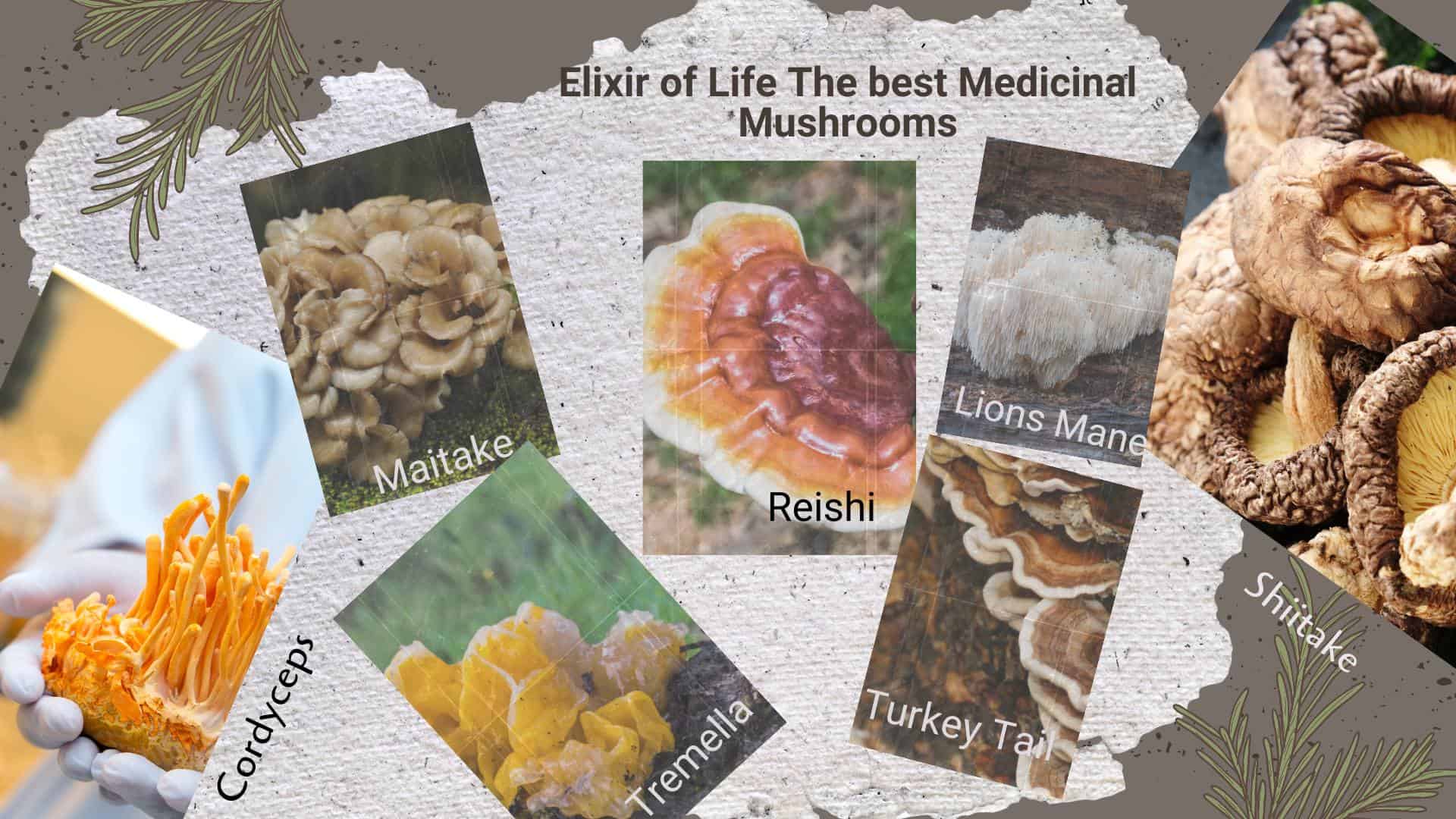


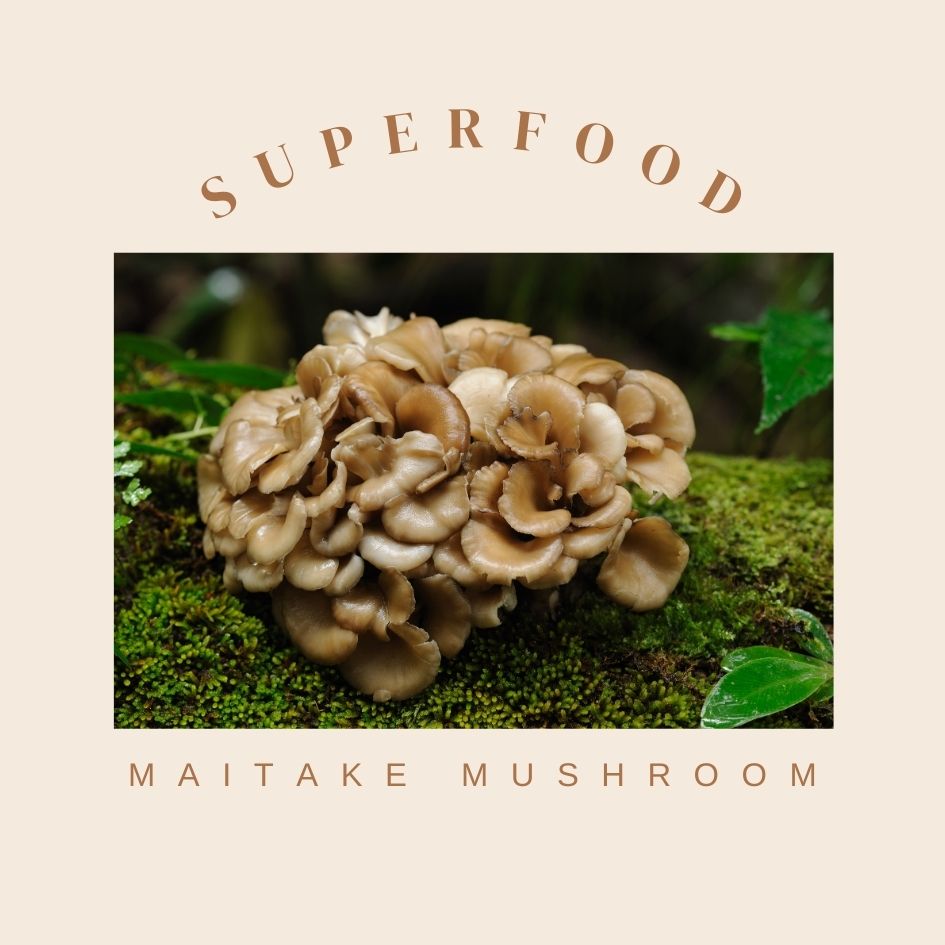

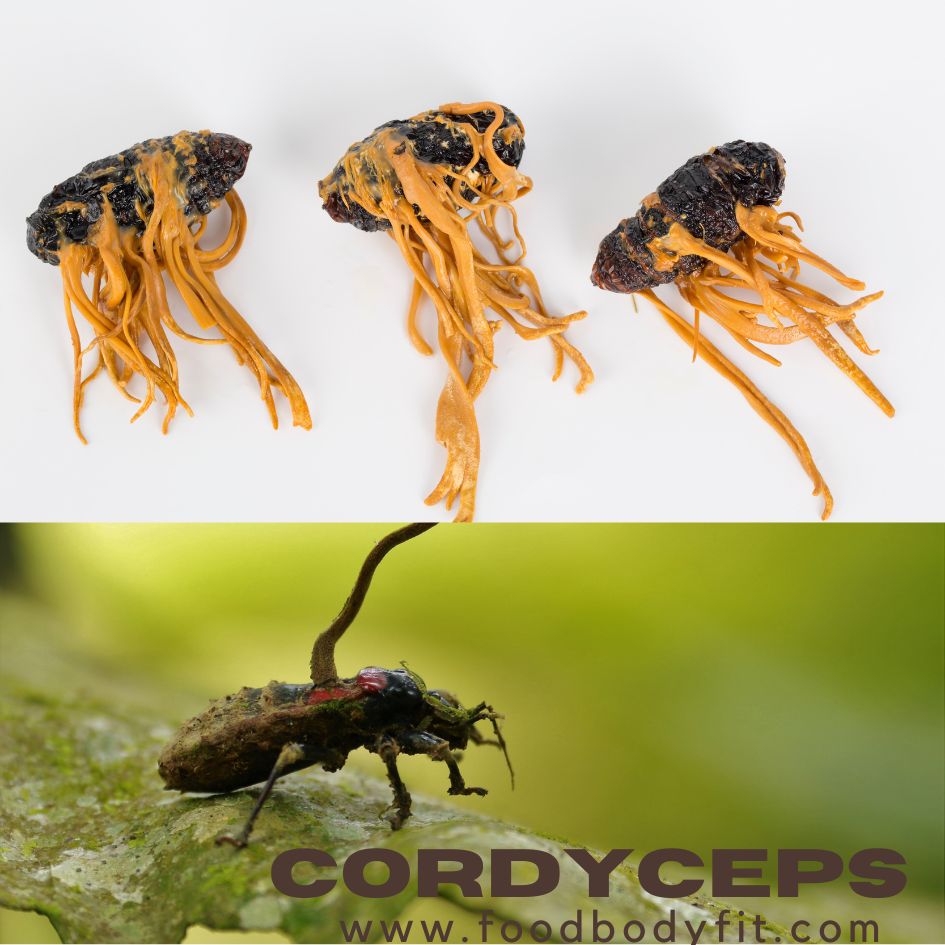








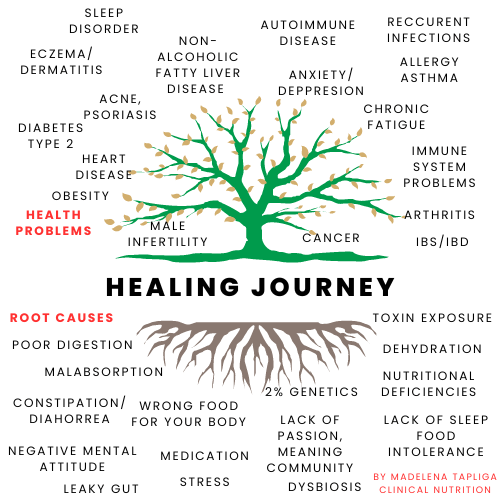








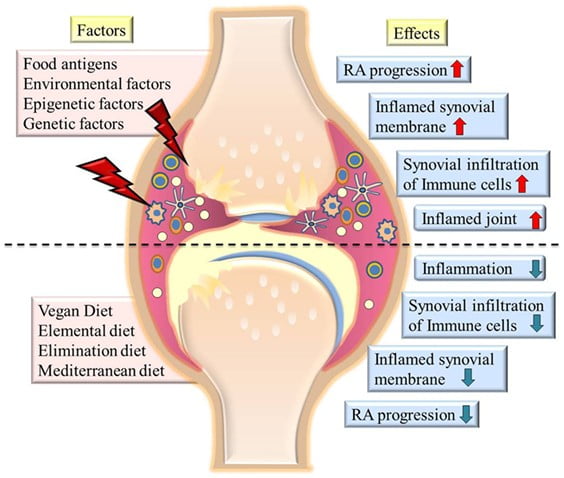
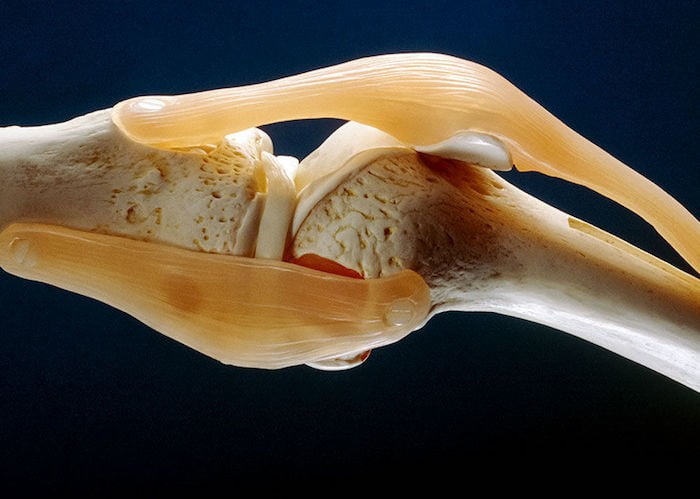





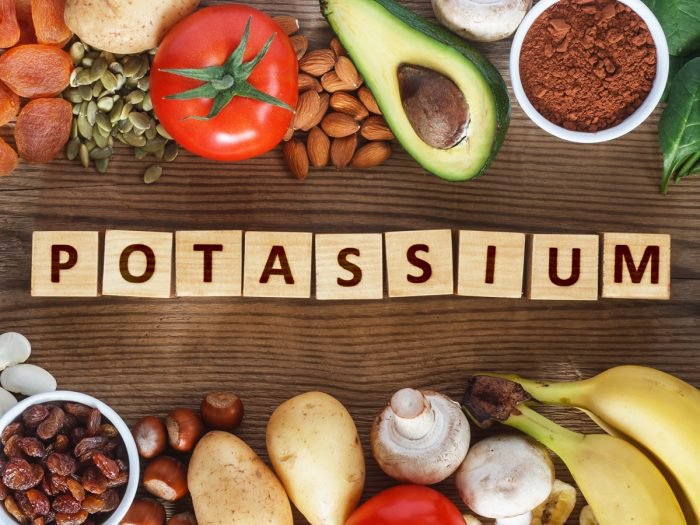





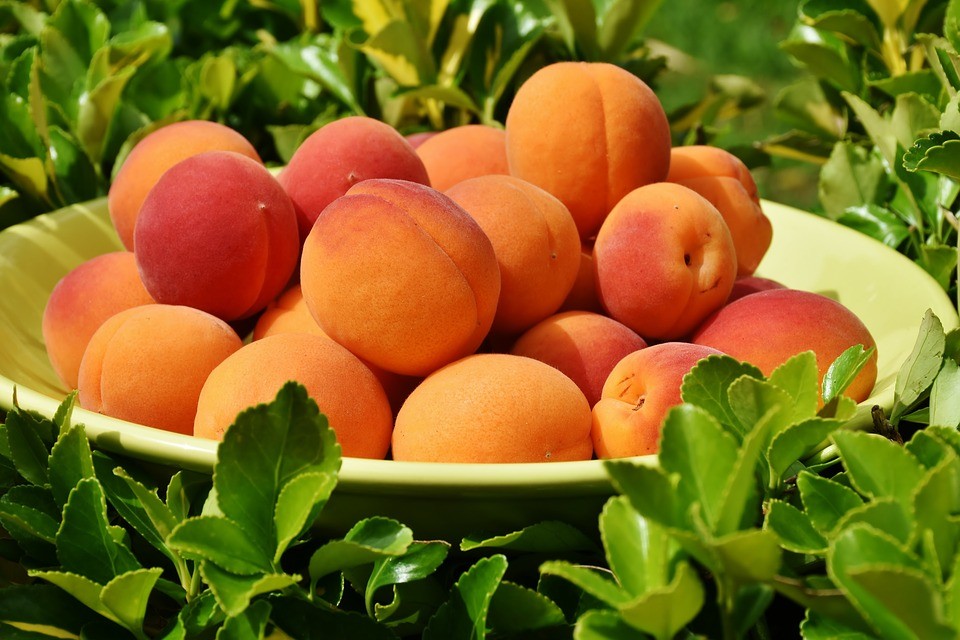






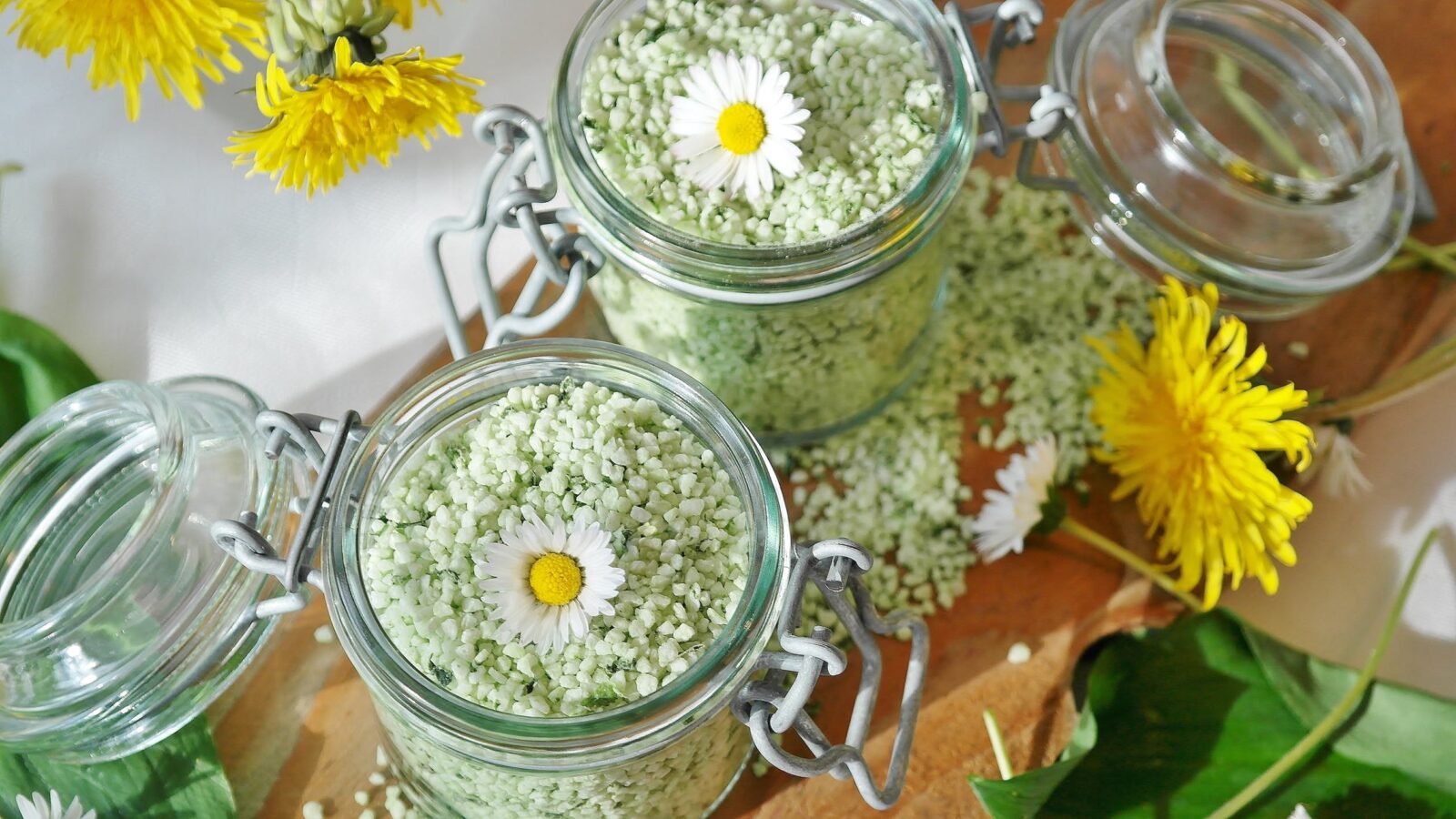


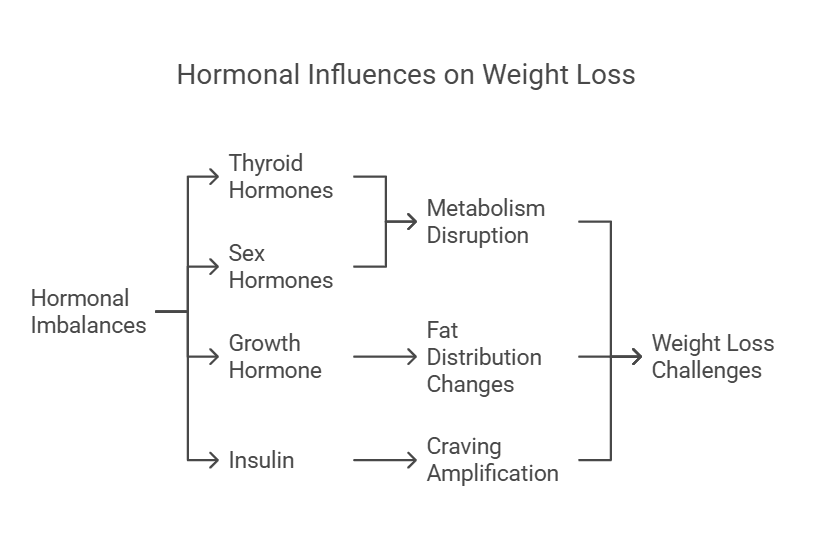
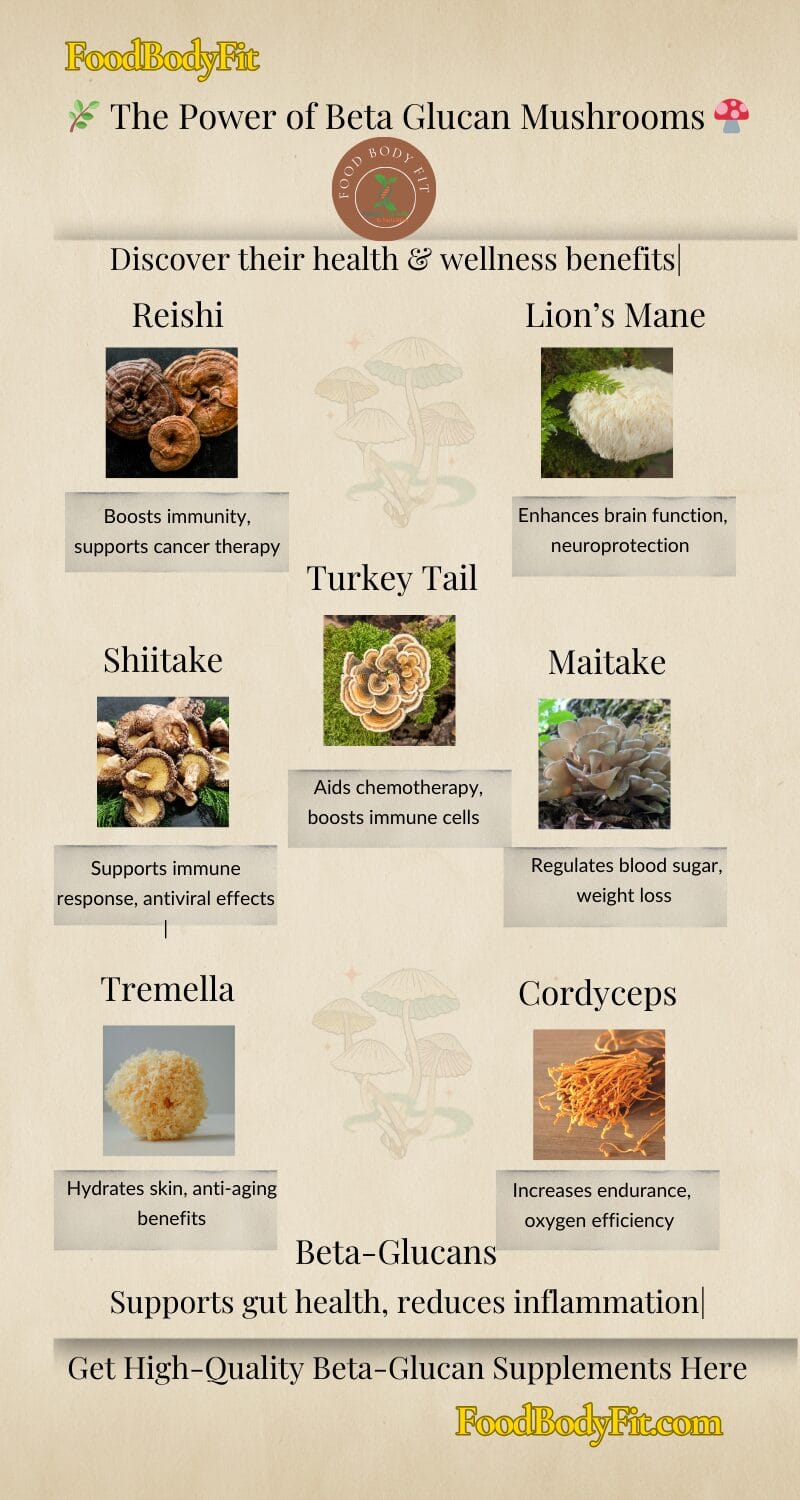

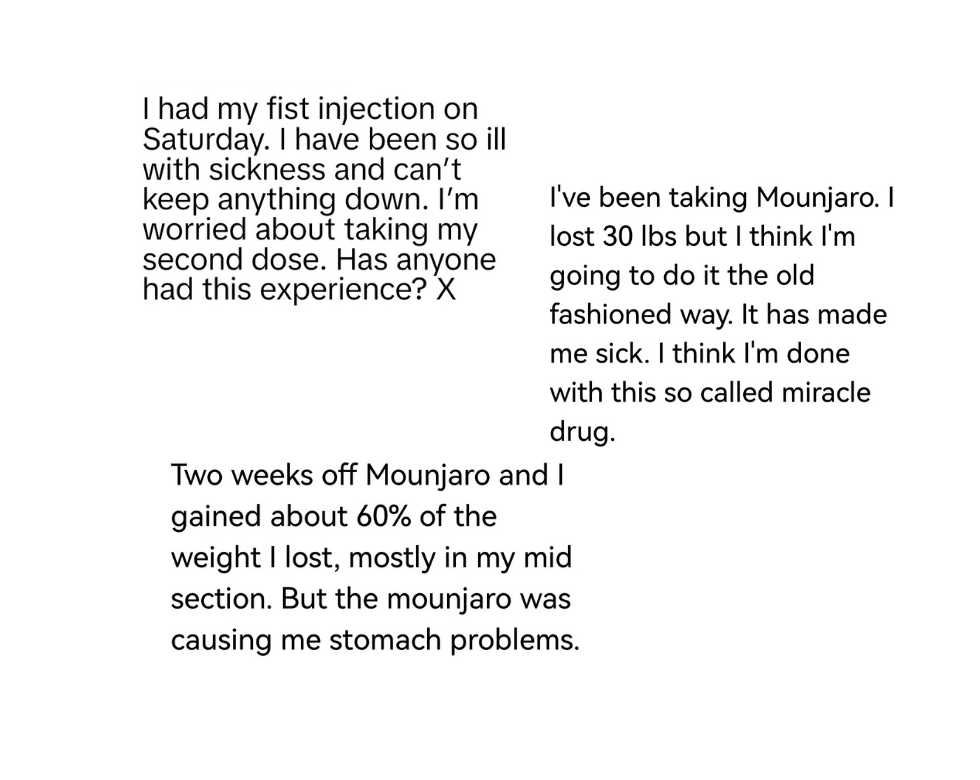

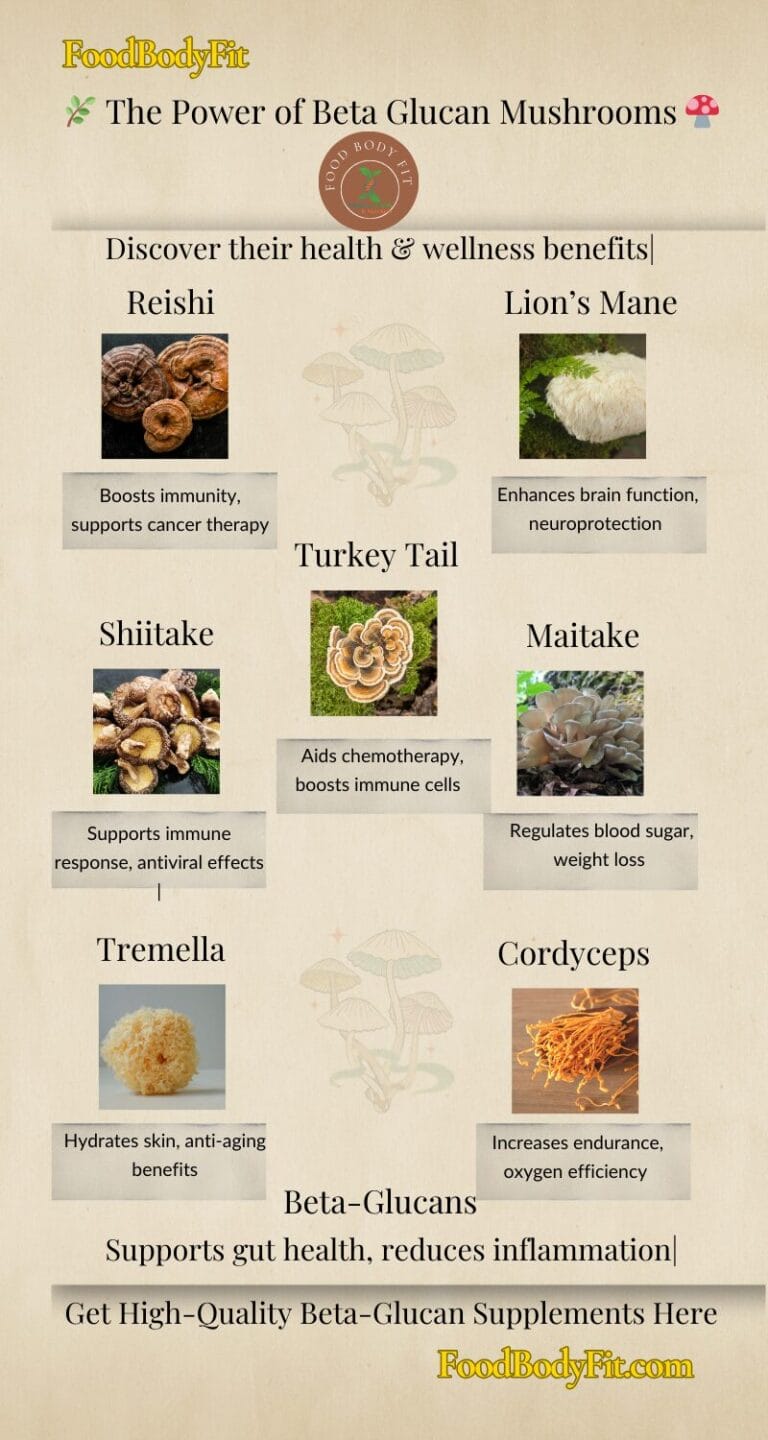
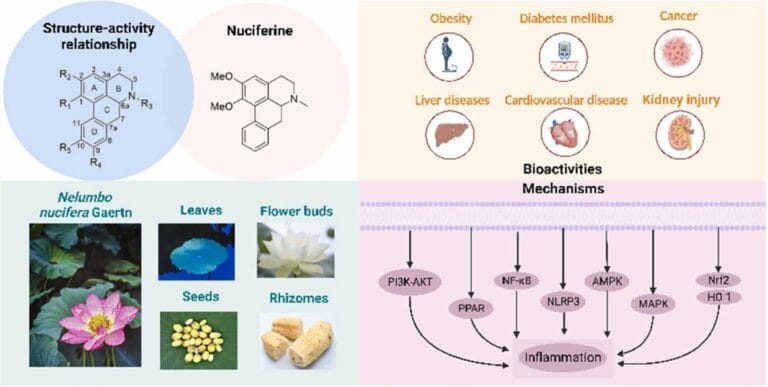
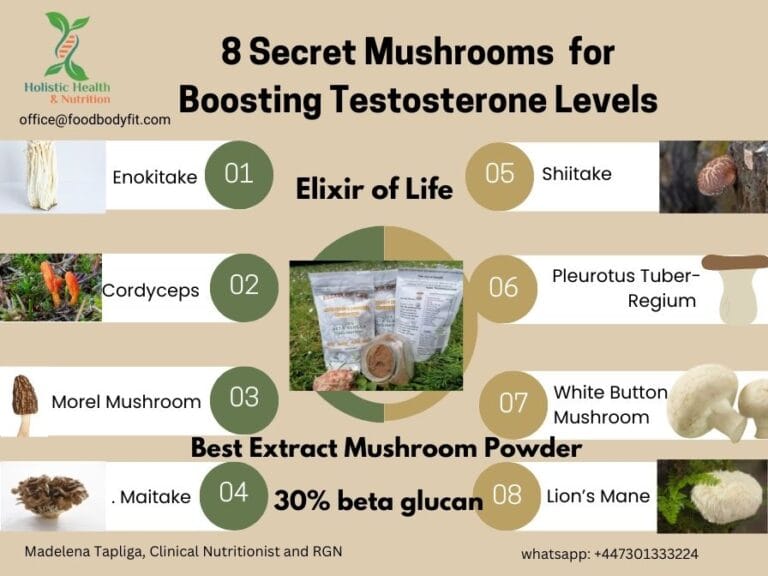
[…] celebrated for its immune-boosting qualities, while cordyceps mushroom powder, specifically organic Cordyceps militaris powder, is sought after for its energy-enhancing […]
[…] the growing popularity of medicinal mushrooms like Lion’s mane, Cordyceps, Tremella, Shiitake, Maitake, Turkey Tail and many more, people want to know which form offers the […]